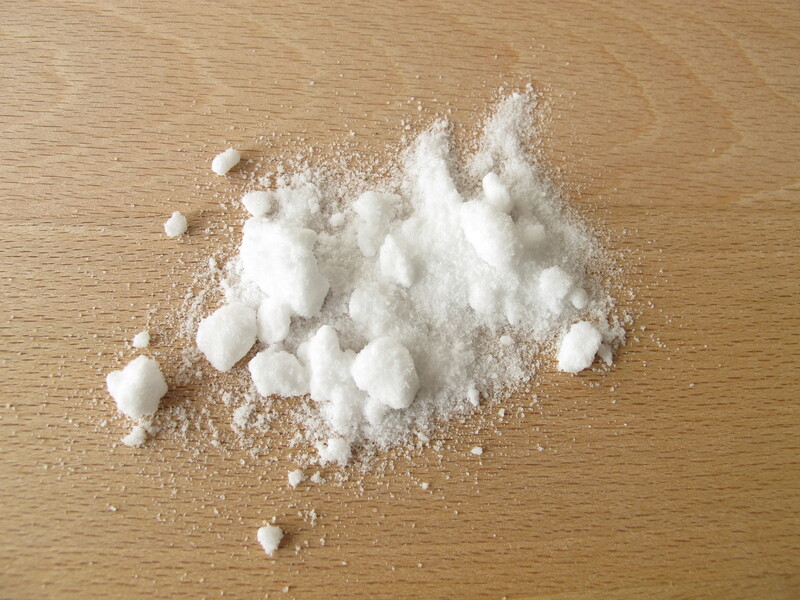Achieving Spotless Curtains: The Ultimate Guide
Posted on 20/06/2025
Achieving Spotless Curtains: The Ultimate Guide
Spotless curtains can dramatically enhance the ambiance of a room, act as a filter for dust and allergens, and even prolong the life of your furnishings. However, many people overlook curtain care, resulting in dull, faded, or dirty fabrics that detract from your living space's beauty. Whether you have delicate sheers or heavy draperies, this guide will walk you through how to clean curtains effectively, maintain their pristine appearance, and prevent future soiling.
Why Spotless Curtains Matter
The appeal of pristine curtains extends beyond visual impact. Spotless curtains:
- Enhance the aesthetic value of your home
- Improve air quality by capturing dust, allergens, and contaminants
- Protect furniture and flooring from UV damage
- Promote a healthy, hygienic environment
Ignoring curtain maintenance can result in embedded stains, dull fabric, and the eventual need for costly replacements. Therefore, understanding how to achieve immaculate curtains is crucial for any homeowner.

Understanding Different Curtain Fabrics
Curtain cleaning begins with knowing your fabric. The right method ensures longevity and cleanliness:
- Cotton curtains - Durable and easy to clean; can usually be machine washed.
- Linen curtains - Breathable but prone to shrinking; often require gentle cold washing or dry cleaning.
- Silk curtains - Delicate and luxurious; typically demand professional cleaning.
- Velvet curtains - Dense and plush; vacuum regularly and dry clean for deep cleaning.
- Synthetic curtains (polyester, nylon) - Resistant to wrinkles and shrinking; can often be machine washed.
- Sheer curtains - Light and delicate; best cleaned by hand or on a gentle machine cycle.
Always check manufacturer's labels for cleaning instructions before proceeding.
Step-by-Step Guide: Achieving Spotless Curtains at Home
1. Preparation Is Key
- Remove hooks, rings, and other attachments.
- Gently shake to dislodge loose dust and debris.
- Vacuum with an upholstery attachment to remove surface dirt.
- Check the care label for any specific recommendations or warnings.
2. Machine Washing Curtains
Machine washing is suitable for many curtain types, especially cotton, linen, and some synthetics:
- Use cold water and a gentle cycle to avoid damage.
- Add mild detergent to preserve fabric color and integrity.
- Wash curtains separately from heavier items to prevent snagging.
- After washing, hang or dry flat to minimize wrinkles and shrinkage.
Pro Tip: Spot treat any stains before placing curtains in the machine using a diluted solution of water and mild detergent.
3. Hand Washing Delicate Curtains
For curtains made of silk, lace, or sheers:
- Fill a large basin or bathtub with cool water and a small amount of gentle detergent.
- Soak curtains for 10-15 minutes.
- Gently agitate the fabric with your hands (avoid wringing).
- Rinse thoroughly with clean water.
- Press out excess water without twisting, then hang to air dry.
NOTE: Never use hot water or harsh chemicals on delicate curtains!
4. Steam Cleaning Curtains In Place
Steam cleaning is a highly effective and convenient way to keep your curtains spotless, especially for heavy drapes:
- Use a clothes steamer set to the appropriate temperature for your fabric.
- Work from top to bottom, holding the steamer a few inches from the curtain.
- Allow curtains to dry with windows open for ventilation.
Steam cleaning not only removes dirt but also eliminates dust mites and neutralizes odors.
5. Professional Dry Cleaning
Some curtains require expert care:
- Take silk, velvet, or lined curtains to a professional dry cleaner to avoid damage.
- Request stain treatment if needed.
- Inform the cleaner of any metal components or embellishments on your drapes.
Professional cleaning ensures the curtain fabric remains intact and vibrant.
Treating Curtain Stains: Expert Spot Removal Tips
Act quickly! The sooner you treat a stain, the better the outcome:
- For oil-based stains: Blot with a paper towel, sprinkle cornstarch to absorb oil, and brush off before cleaning.
- Water-based stains: Dampen a clean cloth with cold water and gently dab (do not rub) the stain.
- For persistent marks, use a fabric-specific stain remover, testing on a hidden area first.
- Avoid bleach, especially on colored or patterned curtains.
Tip: For mildew or musty odors, mix one part white vinegar with three parts water and dab gently. Always dry thoroughly to prevent more mold growth.
Drying and Ironing Curtains for a Flawless Finish
Proper Drying Techniques
- Hang curtains outdoors on a breezy day for the best results (avoid direct sun to prevent fading).
- For indoor drying, ensure good air circulation and avoid hanging over wood surfaces to prevent water damage.
- Do not tumble dry delicate fabrics.
Ironing and Steaming Tricks
- Iron on the reverse side at the appropriate heat setting for your fabric.
- For sheers or synthetics, lay a towel over the curtain and use a low heat setting.
- Steaming is often safer and helps remove wrinkles without direct contact.
Preventing Future Stains and Soil: Proactive Curtain Care
Keeping curtains spotless requires ongoing attention:
- Vacuum every 1-2 weeks with a soft brush attachment.
- Rotate and shake out regularly to minimize dust buildup.
- Keep windows and doors closed during dusty weather.
- Install washable liners to add a protective barrier.
- Avoid smoking or burning candles near curtains to prevent soot stains.
- Address stains immediately--don't let them set.
Pro Tip: Use an air purifier to reduce the amount of airborne dust and allergens your curtains absorb.
Special Curtain Maintenance Challenges
Dealing with Pet Hair and Allergens
- Use lint rollers or a damp microfiber cloth to remove pet hair.
- Regularly deep-clean if you or family members have allergies.
Maintaining Blackout and Thermal Curtains
- Spot clean the lining with a damp cloth to avoid damaging thermal coatings.
- Avoid fully immersing in water unless manufacturer instructions say it's safe.
Handling Faded or Sun-Damaged Curtains
- Rotate curtains periodically to distribute fading evenly.
- Use UV-protective sprays or window films to reduce further damage.
- Replace or reline if fabric becomes too brittle or threadbare.
How Often Should You Clean Curtains?
- Vacuum: Every 1-2 weeks.
- Deep cleaning: Every 6 months, or sooner in high-traffic or allergy-prone homes.
- Spot treatment: As required for spills, stains, or odors.
- Professional cleaning: Annually for delicate or high-value drapes.
Routine attention extends curtain life and keeps your home sparkling.
Eco-Friendly Curtain Cleaning Methods
- Use plant-based or biodegradable detergents to avoid harsh chemicals.
- Spot clean with a homemade solution of vinegar and water.
- Air dry instead of machine drying to save energy and preserve fabric.
Maintaining spotless curtains can be gentle on both your home and the environment.
DIY Curtain Freshener Spray Recipe
Want to keep your curtains smelling fresh between washes? Try this easy, natural curtain freshener:
- 1 cup distilled water
- 1 tablespoon baking soda
- 10 drops essential oil (lavender, lemon, or eucalyptus)
- Shake, mist lightly, and allow to air dry
Always test spray on a hidden area to check for fabric sensitivity.
When to Replace Curtains vs. Clean Them
- Replace if fabric is irreparably torn, threadbare, or faded.
- Persistent odors or stains that resist all cleaning methods are signs it's time for new drapes.
- Consider an upgrade if your current curtains no longer match your decor or needs.
Sometimes, maintaining spotless drapes means starting fresh!

Frequently Asked Questions (FAQs) About Spotless Curtains
Can I wash blackout curtains?
Some blackout curtains can be machine washed, but most require spot cleaning or professional service to avoid compromising the back coating. Always check the care label.
How do I remove mold or mildew from curtains?
Take down the curtains, brush off spores outdoors, and wash in hot water (if safe for your fabric) with a cup of white vinegar. Dry in sunlight and rehang only when thoroughly dry.
Can I use a regular vacuum on curtains?
Use only an upholstery attachment or a soft brush to avoid pulling or tearing the fabric.
Do curtains attract a lot of dust?
Yes, especially in high-traffic areas or homes with pets. Regular vacuuming and periodic washing help maintain immaculate curtains.
What is the easiest way to keep curtains fresh and spotless?
Frequent vacuuming, immediate spot cleaning, and keeping windows closed in windy or dusty conditions work wonders.
Conclusion: Transform Your Home with Spotless Curtains
Achieving truly spotless curtains is possible with a thoughtful routine and the right cleaning approach. By understanding fabric care, treating stains promptly, and applying preventative maintenance, you can enjoy beautiful, fresh curtains that elevate every room. Make curtain cleanliness a regular part of your home care for improved aesthetics, enhanced health, and a welcoming atmosphere year-round.
Don't let neglected curtains undermine your home's style--use this ultimate guide to keep your drapes looking as good as new!








